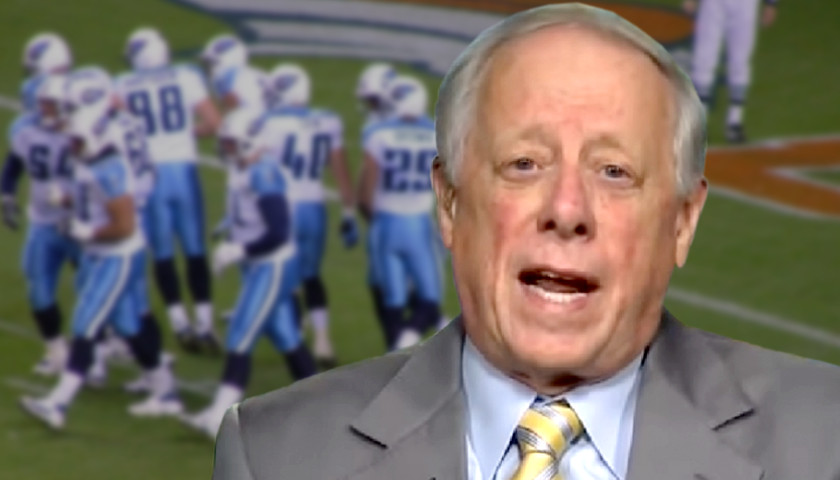Former Gov. Phil Bredesen, the presumptive Democratic nominee for the U.S. Senate in Tennessee, wants voters to believe that he is a pragmatic problem-solver with a track record of getting things done.
But a closer look at that track record reveals that Bredesen “gets things done” through the use of accounting sleight of hand that shifts taxes paid by one group to benefits received by another.
A case in point is the accounting sleight of hand Bredesen used to lure the NFL’s Houston Oilers to Nashville in the 1990s.
A white paper entitled ““Horse Trading” and Consensus Building: Nashville, Tennessee and the Relocation of the Houston Oilers” lays out the case that then Nashville Mayor Bredesen basically misled voters and used an exorbitant tax increase to put a notch on his belt for luring the NFL’s Oilers to Nashville back in 1996.
That may be all well and good for some, but a deep dive raises serious questions as to whether or not it was a prudent investment of taxpayer dollars received by what some might call misleading tactics.
In a special referendum on May 7, 1996, voters in Metropolitan Nashville/Davidson County voted to approve partial funding of the proposed stadium. The vote, which allocated US $144 million of public money to the project, passed with a 59% majority. [The pro-stadium organization, known as “NFL Yes!” outspent the anti-stadium group by a ratio of 16:1 during the campaign.]
The funds initially would be raised through an increase in the Metro water tax. The ongoing funding is through a 300% increase in Davidson County individual homeowner property taxes. Much of the remaining construction costs were funded through the sale of personal seat licenses. Some State of Tennessee money was allocated to the project, on the condition that the Tennessee State University football team move its home games there, and with the request that the incoming NFL team be named “Tennessee” (instead of “Nashville”), which the franchise was planning to do anyway, in an attempt to appeal to the broader region.
In 2015, The Beacon Center labeled the move The Titans of Waste, going on to point out that it may have enhanced Bredesen’s resume but was hardly a good deal for the working class.
“It’s unfair to middle- and low-income residents. As someone who is both firmly in the middle class and a football fan, it’s unfathomable to me that my tax dollars are going to a team that I can’t often afford to see. The idea that the tax dollars of low-income and middle-class Nashvillians goes to a football team through the force of government, and these very same people don’t have the money to afford tickets to a game is criminal. At least when tax dollars go to a park or anything in the public space, taxpayers have the opportunity to get some sort of return on investment by using the space. Taking money from people who can’t afford to buy tickets to games has absolutely no return on investment.
Taxpayer subsidies for stadiums happen in almost every city with a professional team and are among the worst examples of corruption between government and big business. With a new stadium for the Titans potentially on the horizon, it’s time that we sack these subsidies before we waste more taxpayer money.”
And even now, The Tennessean points out the stadium’s need for hundreds of millions more for maintenance in the years ahead, making it more of a money pit, than the fast talking Phil Bredesen had all but promised in the first place.
Nissan Stadium and Bridgestone Arena collectively need $477 million in improvements over the next 20 years to extend the life of both Metro-owned facilities, city consultants say.
Projected costs, which cover everything from architectural improvements to better technology and plumbing, are outlined in new condition assessments commissioned by Metro.
The voluminous reports, released on Thursday, come as the franchise lease agreements at Nissan Stadium and Bridgestone Arena, both built in the 1990s, expire in 2028.
Bredesen is expected to face presumptive Republican nominee Rep. Marsha Blackburn (R-TN-07) in the November general election to replace retiring Sen. Bob Corker (R-TN) in the U.S. Senate.





When bills come due, the taxpayers will pay again! Please do not be fooled again, deals like this need to be spoken loudly to the taxpayers. Nashville is basically broke now because of slick deals like this and Tennessean’s are considering electing Bredesen again! Be smart, say NO to Bredesen